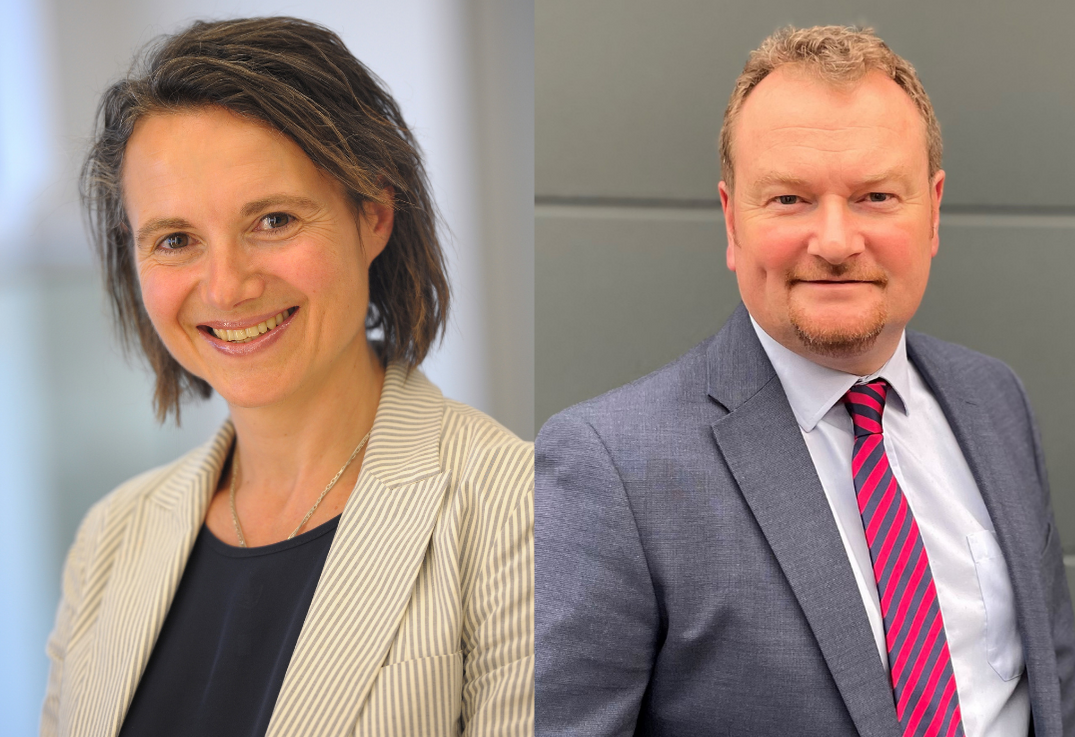SASC launches a Renewables Investment Committee to target more investments in community renewable projects in 2021
17 December 2020 – Social and Sustainable Capital (SASC) are establishing a dedicated renewables investment committee, in recognition of the growing importance of community renewables in their portfolio and to expand their work in this area.
Joining the new committee are Mark Billsborough, Head of Renewable Sales and Trading at SSE Renewables and Louisa Cilenti, Partner at Lux Nova Partners, who will use their expertise and experience from many years working in this space to help SASC scrutinise and monitor investments.
Prior to the acquisition of Leapfrog Bridge Finance (LBF) in September this year, SASC had invested over £11m in six community energy projects including financing Heart of England Community Energy to acquire what has become the largest community owned solar farm in the UK.
The acquisition of LBF, now SASC Bridge Finance, will allow the fund manager to expand its activity in this important sector.
Mark Billsborough is a wholesale energy trading and renewable energy expert, with specialist knowledge in wind renewable investment valuation and routes to market. He has experience with large-scale renewable projects and assets through more than 15 years at E. ON Climate & Renewables and SSE Renewables and developed community energy experience while procuring energy for Co-Op Energy, prior to their sale to Octopus Energy.
Mark said, “The renewables industry has been focussed on reducing the cost and carbon intensity of energy for some time. The UK is a market leader on this approach; it is often not appreciated how far ahead we are. There is a lot of focus on large-scale, offshore projects, which presents an opportunity around onshore renewables that communities can take advantage of.
“But it can’t just be about renewables, it is also about enabling communities. SASC can help encourage communities to embrace local energy projects and help to build skills that are sometimes missing in community energy groups.”
Louisa Cilenti specialises in clean energy financing and Mergers and Acquisitions and heads Lux Nova’s financing practice. She has over two decades’ experience across a wide range of low carbon, renewable and environmental infrastructure projects globally, many of which were breakthrough deals in their day. Louisa has been recognised as a leading lawyer in the renewables sector by Legal 500 since 2015 and by Chambers and Partners since 2017.
Louisa said, “I come from the industrial north and my father and my friends’ dads were all coalminers. During the miners’ strike, I was surrounded by a community that broke and found the loss of pride and community completely devastating. I went into infrastructure because I saw it as an enabler of prosperity that could help strengthen communities. I also believe that local people are the key to prosperity in a community.
“The community renewables market lacks some rigour and discipline, but it doesn’t lack enthusiasm. As with the SASH housing fund, SASC has the opportunity to structure a product that addresses the risks perceived by communities and also offer a consistent and reliable return to investors. It is about proving to investors that communities are credible partners. SASC can help communities to speak the commercial language.”
Ben Rick, Managing Director, SASC said, “We’re delighted to welcome the expertise of Mark and Louisa to help us power SASC forward in the renewables space in 2021. This is an area we have always been passionate about supporting and several organisations have already benefited from our investment.
“We want to grow our work in renewable investments. We have seen that interest in the renewable energy sector continues a pace in the UK and communities increasingly recognise the benefits it can bring, including helping with fuel poverty, boosting local economies and helping with community cohesion.”
A report by WPI Economics[i] ‘The future of community energy’ in January 2020 highlighted that community energy has grown significantly in the United Kingdom over the last decade but it now stands at a crossroads. Over 350 groups are now responsible for at least 250 megawatts (MW) of renewable energy generation capacity, generating enough electricity to supply the needs of around 100,000 homes.
The primary activity of the sector to date has been electricity generation but the sector also undertakes a wide range of related activity that reduces fuel bills, provides funds for community initiatives and helps communities across the country to decarbonise.
For more information on SASC visit www.socialandsustainable.com
Ends
For media enquiries contact:
Kathryn Hughes, Kayak PR
Kathryn@kayakpr.co.uk
Tel: 07801 823 839
Notes for Editors
About Social and Sustainable Capital
SASC provides simple finance for extraordinary charities and social enterprises. We believe greater access to the right kind of investment makes charities and social enterprises better able to tackle society’s most pressing challenges. Our funds provide flexible capital to enable social sector organisations to grow their social impact, improving the lives of disadvantaged people across the UK. SASC is a social enterprise.
[i] http://wpieconomics.com/site/wp-content/uploads/2020/01/Future-of-Community-Energy-20200129-Web-Spreads.pdf


